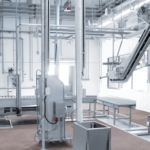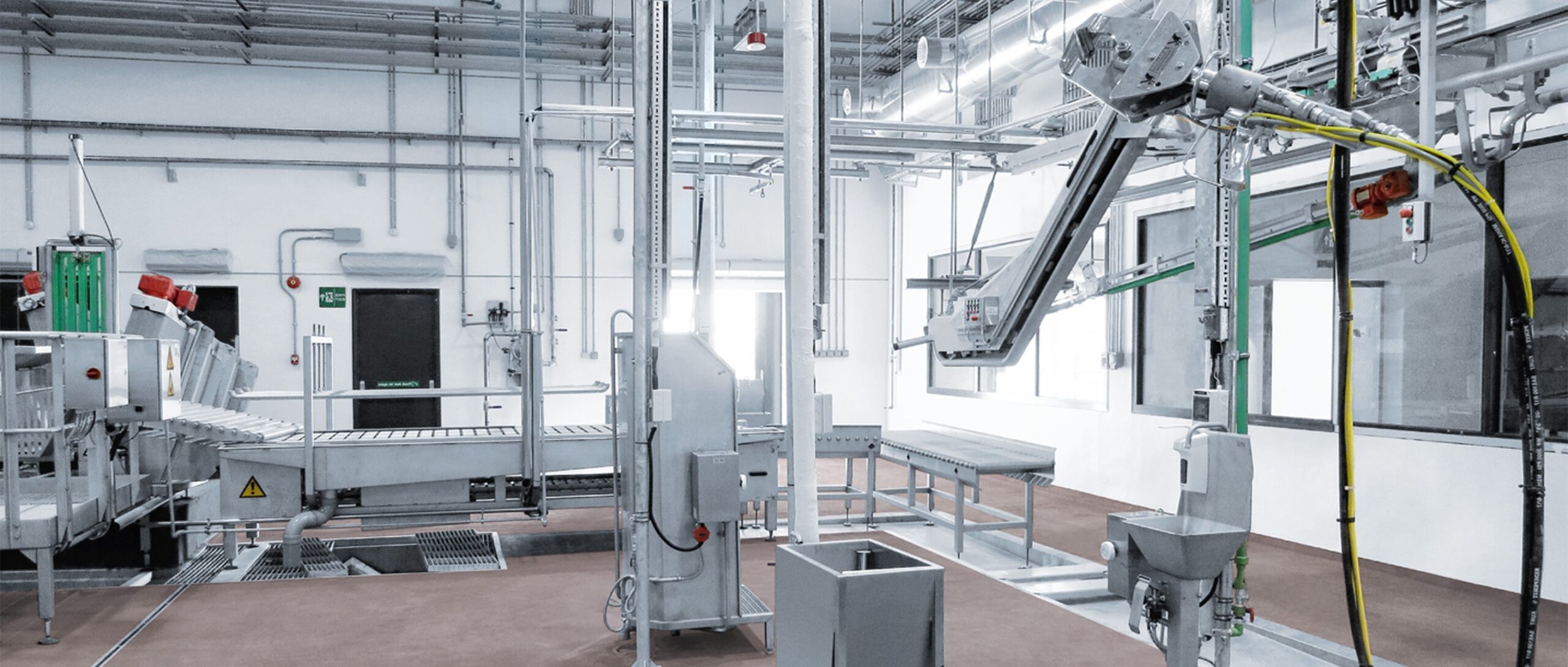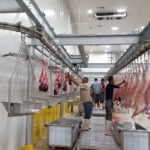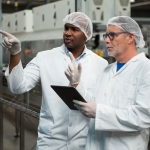
With advancements in automation, data management, and equipment, technology plays a pivotal role in enhancing efficiency, food safety, and animal welfare in abattoir design and processes.
This is an opinion piece or news article written by our staff.

With advancements in automation, data management, and equipment, technology plays a pivotal role in enhancing efficiency, food safety, and animal welfare in abattoir design and processes. In this article, we will explore the significant role of technology in modern abattoir design and processes, highlighting its benefits and the transformative impact it has on the industry.
Automation has transformed abattoir processes, improving efficiency and reducing human error. Robotic systems are now employed for tasks such as carcass handling, cutting, and packaging, ensuring precision, consistency, and increased productivity. Automation reduces physical strain on workers and minimizes the risk of injuries, while also enhancing food safety by reducing the potential for cross-contamination.
Technology enables effective data management and traceability systems, allowing for comprehensive tracking of meat products from farm to fork. Barcode scanning, RFID (Radio-Frequency Identification), and other technologies are used to monitor and record critical information, including animal identification, processing details, and storage conditions. This enhances traceability, simplifies recalls if necessary, and ensures compliance with regulatory requirements.
Modern abattoirs utilize sophisticated technologies for quality control and monitoring. This includes real-time monitoring of temperature, humidity, and other environmental factors to ensure optimal conditions for meat preservation. Additionally, advanced imaging systems and sensors can detect abnormalities in carcasses, enhancing product quality and reducing the risk of contaminated or substandard meat reaching consumers.
Technology plays a vital role in maintaining food safety and sanitation standards. Automated cleaning systems, including high-pressure washers and sanitizing agents, ensure thorough cleaning of equipment and processing areas. Monitoring systems for hygiene practices, such as handwashing stations equipped with sensors, help enforce proper hygiene protocols. Additionally, automated microbial testing systems provide rapid and accurate results, enabling early detection of any potential contamination.
Technology has significantly advanced animal welfare practices in abattoirs. Remote monitoring systems with cameras and sensors allow for continuous monitoring of animal behavior, ensuring that animals are handled and processed in a humane manner. These systems also aid in identifying areas for improvement in animal welfare practices, helping abattoirs maintain high ethical standards.
Modern abattoir design incorporates energy-efficient technologies to reduce environmental impact and operational costs. Energy-saving equipment, such as LED lighting and energy-efficient refrigeration systems, contribute to sustainability efforts. Waste management technologies, such as anaerobic digestion systems for organic waste, help reduce greenhouse gas emissions and promote circular economy practices within the abattoir.
Technology simplifies compliance with regulatory requirements by streamlining documentation processes. Digital systems facilitate the creation, storage, and retrieval of necessary records, including permits, certificates, and audit reports. This improves efficiency, reduces paperwork, and ensures easy access to required documentation during inspections or audits.
Technology has revolutionized abattoir design and processes, enhancing efficiency, food safety, animal welfare, and sustainability. Automation and robotics streamline operations, while data management and traceability systems ensure transparency and accountability. Advanced monitoring and quality control technologies contribute to improved product safety and consistency. Furthermore, technology aids in compliance with regulations and facilitates efficient documentation processes. By embracing technological advancements, modern abattoirs can continue to meet the demands of the industry while prioritizing consumer satisfaction, animal welfare, and environmental sustainability.

With advancements in automation, data management, and equipment, technology plays a pivotal role in enhancing efficiency, food safety, and animal welfare in abattoir design and processes.

Abattoirs play a critical role in this journey, serving as the gateway where livestock are transformed into meat products.

When it comes to abattoir operations, there are different models to consider, including small-scale and large-scale facilities.

Compliance with these regulations is essential to protect public health, maintain industry reputation, and adhere to legal requirements.